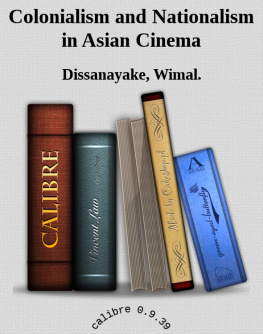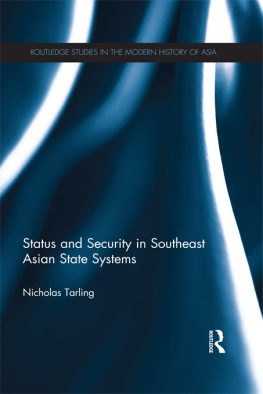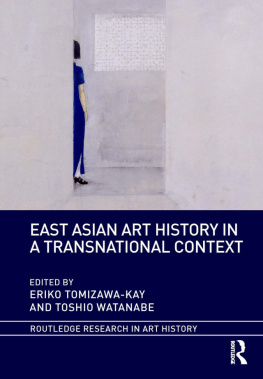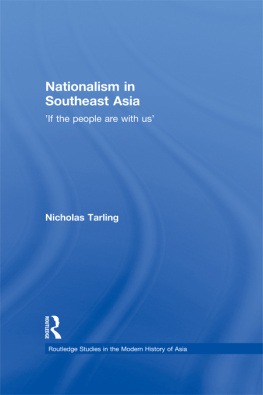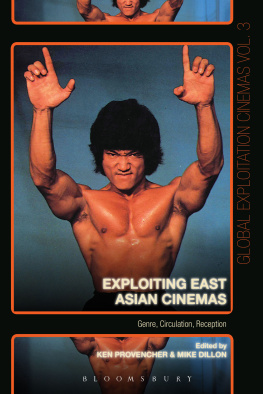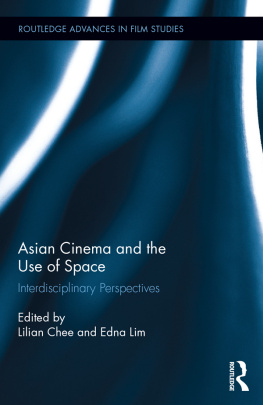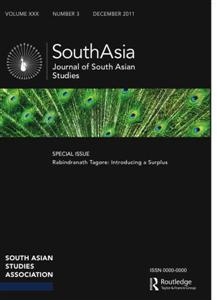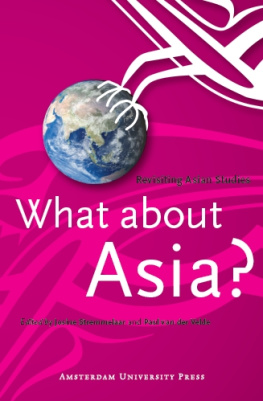
Page iii
Colonialism and
Nationalism in
Asian Cinema
Edited by Wimal Dissanayake
Indiana University Press
Bloomington and Indianapolis
Page iv
1994 by Indiana University Press
All rights reserved
No part of this book may be reproduced or utilized in any form or by any means, electronic or mechanical, including photocopying and recording, or by any information storage and retrieval system, without permission in writing from the publisher. The Association of American University Presses' Resolution on Permissions constitutes the only exception to this prohibition.
The paper used in this publication meets the minimum requirements of American National Standard for Information SciencesPermanence of Paper for Printed Library Materials, ANSI Z39.481984.
Manufactured in the United States of America
Library of Congress CataloginginPublication Data
Colonialism and nationalism in Asian cinema / edited by Wimal Dissanayake.
p. cm.
Includes index.
Contents: Warring bodies / Patricia Lee Masters The "peace dividend" in Japanese cinema / Marie Thorsten Ideology of the body in Red sorghum / Yingjin Zhang A nation t(w / o)o: Chinese cinema(s) and nationhood(s) / Chris Berry Korean cinema and the New realism / Isolde Standish Melodramas of Korean national identity: from Mandala to Black republic / Rob Wilson Vietnamese cinema / John Charlot Cinema and nation: dilemmas of representation in Thailand /
Annette Hamilton National cinema, national culture: the Indonesian case / Karl G. Heider The representation of colonialism in Satyajit Ray's Shatranjkekhilari (The Chess players) / Darius Cooper Cinema, nationhood and cultural discourse in Sri Lanka / Wimal Dissanayake The end of the National project? : Australian cinema in the 1990s / Graeme Turner.
ISBN 0253318041. ISBN 0253208955 (pbk.)
1. Motion picturesAsia. 2. Motion picturesPolitical aspectsAsia. I. Dissanayake, Wimal.
PN1993.5.A75C65
1994
302.23'43'095dc20
9351497
1 2 3 4 5 00 99 98 97 96 95 94
Page v
Contents
Acknowledgments
vi
Introduction: Nationhood, History, and Cinema: Reflections on the Asian Scene
ix
Wimal Dissanayake
1. Warring Bodies: Most Nationalistic Selves
Patricia Lee Masters
2. The "Peace Dividend" in Japanese Cinema: Metaphors of a Demilitarized Nation 11
Marie Thorsten Morimoto
3. Ideology of the Body in Red Sorghum: National Allegory, National Roots, and Third 30
Cinema
Yingjin Zhang
4. A Nation T(w / o)o: Chinese Cinema(s) and Nationhood(s)
Chris Berry
5. Korean Cinema and the New Realism: Text and Context
Isolde Standish
6. Melodramas of Korean National Identity: From Mandala to Black Republic
Rob Wilson
7. Vietnamese Cinema: First Views
John Charlot
8. Cinema and Nation: Dilemmas of Representation in Thailand
Annette Hamilton
9. National Cinema, National Culture: The Indonesian Case
Karl G. Heider
10. The Representation of Colonialism in Satyajit Ray's
The Chess Players
Darius Cooper
Page vi
11. Cinema, Nationhood, and Cultural Discourse in Sri Lanka
Wimal Dissanayake
12. The End of the National Project? Australian Cinema in the 1990s
Graeme Turner
Contributors
Index
Page vii
Acknowledgments
This volume is a collaborative effort in the best sense of the term. My first and greatest debt is to the very fine scholars whose writings are included in this book all of them are deeply committed to the exploration of cultural discourses surrounding Asian cinema. Patricia Mellencamp, who has always shown an interest in my work, encouraged me in this effort as did Andrew Ross and Meaghan Morris. I am grateful to Geoffrey M. White, Director of the Program for Cultural Studies at the East
West Center, for his support. Benjamin Lee, Director of the Center for Transcultural Studies, invited me to present an earlier version of the introduction at one of his seminars, and I benefited greatly from the various suggestions made. In particular, I wish to thank Miriam Hansen and Michael Geyer. John Charlot's essay was initially published in the Journal of Southeast Asian Studies, and I appreciate the generosity of the editor, Albert Lau, for granting permission for the essay to be included in this volume. The University of Hawaii kindly granted permission to reprint two Korean poems that are discussed in Rob Wilson's essay. And my wife, Doreen, and daughter Niru helped me with the proofs. I wish to record my gratitude to the staff of Indiana University Press for their guidance and ready cooperation.
Page ix
INTRODUCTION:
Nationhood, History, and Cinema:
Reflections on the Asian Scene
Wimal Dissanayake
ASIAN CINEMA IS increasingly attracting the attention of film critics, scholars of cinema, and specialists in cultural studies. Numerous thematizations closely associated with the growth of cinema are being explored from diverse theoretical vantage points. The objective of this collection of essays, dealing with different Asian cinemas and different problematics, is to make a contribution in some small way to this newly emerging interest by exploring the imbricated questions of nationalism and colonialism which are central to the cinematic discourse in Asian countries.
The terms colonialism and nationalism admit of a plurality of meanings related to such issues as territoriality, power, identity, subjectivity, ideology, symbolization, and narrativity. As Edward Said has observed, imperialism means the practice, the theory, and the attitudes of a dominating metropolitan center ruling a distant territory, while colonialism is almost always a consequence of imperialism and is the implanting of settlements on distant territory. Nationalism signifies a close and emotional identification with the nation and the construction of legitimating and unified narratives linking past, present, and future. However, each of these terms generates a multiplicity of meanings and valences and hence cannot be usefully contained within simple definitions and descriptions. It is important to remind ourselves that colonialism and nationalism are not transhistorical and transdiscursive categories and that historical conjunctures, social formations, and cultural specificities play a crucial role in our understanding of them.
Colonialism is a form of violence and domination, a state of mind, a cultural practice, a multivalent discourse, and an ideology of expansion. The relationship between colonialism and nationalism is complex, ambiguous, and multifaceted. Nationalism, on the other hand, simultaneously extends the range and depth of colonialism, offers the most palpable resistance to it, subverts its imperatives and determinations, and serves to reproduce it in subtle and not so subtle ways. Thus the relationship between colonialism and nationalism is ridden with paradoxes. This relationship is also at the heart of the narrative of cultural modernity in Asian societies. Hence the web of relationships spawned by
Page x
the interplay of colonialism and nationalism is crucial to our understanding of Asian cultures and their trajectories of development. In this volume of essays we have sought to examine the intersection of the discourses of colonialism and nationalism in terms of two very significant and imbricated thematics, namely, nationhood and history.
Next page
